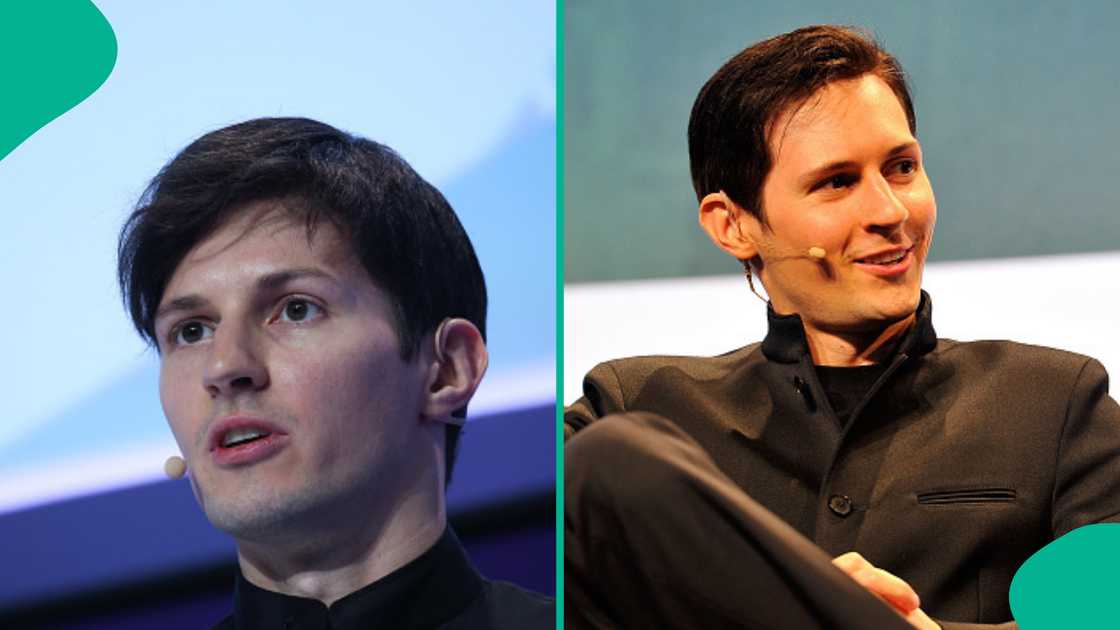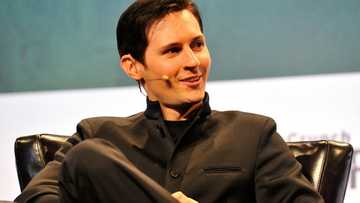Pavel Durov: Founder of Telegram, Father of 100 Children, Among Others
- The founder of Telegram navigates a life of ceaseless movement and controversy, driven by an unyielding quest for freedom
- From his early days as a coding prodigy in Russia to his battles with governments over encryption
- Durov remains both a champion of privacy and a magnet for suspicion to many and the government
Pavel Durov, a figure both idolised and vilified, drifts through the world in all its complexities, always attempting to elude capture while forging a freer digital empire.
The founder of Telegram—detained in France last week and entangled in legal webs—embodies the contradictions of the tech age: a billionaire entrepreneur with the soul of a renegade, a man who shuns borders yet creates virtual sanctuaries for those who seek refuge from prying eyes.

Source: Getty Images
To some, he's a programming prodigy; to others, a Kremlin pawn. But to those who speak to the facts he has confirmed, he is a father to over a hundred children.
Elusive freedom
Born in 1984 in the crumbling remains of the Soviet Union, Durov's life has been a ceaseless journey—a quest for an elusive freedom that seems ever just beyond the horizon,. He confirmed to reporters in many of his interviews that he loves to be free.
PAY ATTENTION: Сheck out news that is picked exactly for YOU ➡️ find the “Recommended for you” block on the home page and enjoy!
His childhood, spent partly in Italy before the family's return to a post-Soviet Russia, was a prelude to his later life: a series of rapid shifts, of mastering new codes—both linguistic and computational.
It was in the shadow of Russia’s transition to capitalism, that the young Durov began to craft his future—one line of code at a time.
By 2006, fresh out of university, Durov had unleashed Vkontakte (VK) upon the world, a social media platform that would quickly become the Facebook of Russia. VK was more than just a platform; it was a promise, he said, a tantalising taste of the freedom that Durov sought.
But that promise soon curdled. When Ukrainian protesters were reported to have used VK to organise against their pro-Russian president in 2013, the Kremlin came knocking, demanding access to user data. Durov refused.
That refusal was the beginning of the end for Durov's tenure at VK. He left the company, a move that was believed to have cleared the way for the Kremlin's proxies to seize control.
Pavel Durov on Telegram
Upon resigning, he left Russia with a strong mission. That mission took shape in the form of Telegram, a messaging app that he designed with his brother, Nikolai. He believed it was the best messaging app in terms of data safety.
He once said:
"It doesn’t matter how many messaging apps are out there if all of them su'ck.”
Telegram's end-to-end encryption was a game-changer to many, a digital fortress that promised security in an age of increasing government influence.
But it also attracted the wrong kind of attention. When the app was linked to the 2015 Paris terror attacks, Durov was forced to break his usual silence, embarking on a media blitz to reassure the public that Telegram was not a haven for criminals.
Yet, the controversies only mounted. Governments from Moscow to Washington decried Telegram's refusal to compromise on encryption. In 2018, Russia even attempted to ban the app, a move that Durov defied with characteristic bravado. The ban was lifted in 2020, and Telegram continued to operate in Russia—a fact that has fueled endless speculation about Durov’s true loyalties.
Critics whisper of secret deals, of concessions made to the Kremlin in exchange for Telegram’s survival. Durov, for his part, scoffs at such accusations, pointing to his earlier clash with the Russian government as proof of his independence.
For all his billions, his multiple passports, his countless children, Durov remains an enigma. His life, a relentless pursuit of an idealized freedom, seems increasingly out of reach, forever slipping through his fingers like sand.
Telegram chief Pavel Durov arrested at French airport
Meanwhile, Legit.ng earlier reported that the Telegram chief executive was scheduled appear in court after being arrested by French police at an airport near Paris.
He was arrested for alleged offenses related to his popular messaging app, sources told AFP.
Proofreading by James, Ojo Adakole, journalist and copy editor at Legit.ng.
PAY ATTENTION: Unlock the best of Legit.ng on Pinterest! Subscribe now and get your daily inspiration!
Source: Legit.ng





